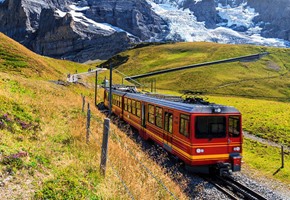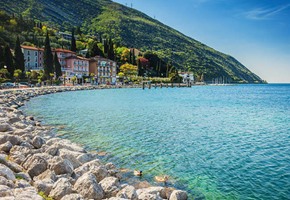Often, when exploring a new country, it isn't just the culture, culinary accomplishments and architecture that draws in visitors; history has its own lure, attracting avid fans of the past and curious onlookers to wander calmly through the same landscapes that once witnessed brutal and bloody conflicts, were the backdrops to dehumanising societies, or the stage for shocking events. The act of walking through a nation's history whilst on holiday can feel both tacky and complicit, as the cultural conversation over the appropriateness of the humble selfie can attest to. As is often the case, technology is forcing us to re-assess the boundaries of what is acceptable, and in this case, it is a question of historical etiquette that has raised nuanced issues of cultural understanding, reverence for the past, and the desire for knowledge colliding with the entertaining nature of the traditional holiday. So where do you draw the line? How do we experience history without making a mockery of it?
Answers might just lie in the 100th anniversary of Russia's bloody 1917 Revolution, and the upcoming 100-year anniversary of the death of the tsars, in 2018, as authorities struggle with the narrative of their nation. How to pay testament to the independence of the state, whilst acknowledging the horrors it arose from?
Russia is a clash of contradictions when it comes to its history, and how it is best served. Officially, the murdered royal family became saints of the Russian Orthodox Church, but Lenin is still embalmed and on display in Red Square, and a Moscow metro station is named in memoriam of Pyotr Voikov - the architect of the family's execution. This lack of a coherent national narrative is unwittingly reflective of the cognitive dissonance felt by many travellers exploring the history of a destination; how to reconcile the 'fun' of a holiday with the tragedy of the past? Is it better to bypass the hard stuff altogether, or does that risk missing out on key context for an unfamiliar culture?
Russia's answer as a nation is to both respect the tragedy of events and to celebrate the current state of the country, which would not have existed as an independent state, were it not for the bloodshed and mayhem of the revolution; and to a degree, this approach can be adopted by visitors to complex historical sites. Understanding the impact of the past on the contemporary feel of a destination is both difficult and rewarding, and can help travellers gain a deeper insight into the culture of a country, its people, its struggles and its greatest moments. However, approach is key; experiencing history should be about uncovering the true narrative (sometimes brutal) of sites of significance, and using that to further understand the society that stands today, the monuments it has chosen to preserve or eradicate, and the reflections it makes on its own past.
That said, whilst delving into the history of your destination should mean focussing the narrative outwards, and avoiding the self-indulgent misstep of using tragedy as a selfie backdrop, it shouldn't necessarily dominate your entire time away, or your experience of your destination. Whilst most countries exist in a long and complex historical context, some of which is preserved in sites of symbolic and literal historical value, very few are shackled to a specific time period. Countries, like people, learn from their mistakes and move on; understanding where they came from is key to unravelling their secrets, but shouldn't overshadow the enjoyment of your holiday, or the current cultural climate. Holidaymakers are rarely looking for an investigation, so allow yourself to relax, and remember that whilst your experience may be limited by overlooking key historical sites, you are not obliged to pay tribute to the past tragedies of another nation.
So how should you approach dark historical topics whilst on holiday? Remember these five points.
1. Be sensitive to the mood surrounding the site or event. Local guides or signs should indicate the appropriate approach when visiting a site.
2. Don't place yourself at the centre of the narrative. Your holiday is all about you; unless you lived through it, and are re-visiting, history is about other people. When exploring historical sites, be sure to put their story first.
3. It's ok to relax. Unless your plan is to specifically dedicate your holiday to exploring the trials and tribulations of a particular period of history, spend the majority of your time appreciating the current attractions of your destination, rather than obsessing about its history.
4. The closer in time the event, the more respectful you should be. If a tragedy still resonates with a sense of loss, or is within living memory, it can still be painful to many people; by contrast, there are few that would feel pained by tourists taking selfies in the Colosseum, though it was a site of great bloodshed. The passage of time is key.
5. Have something to take away from the experience. The point of history is to learn - so be sure to glean something from the experience.






